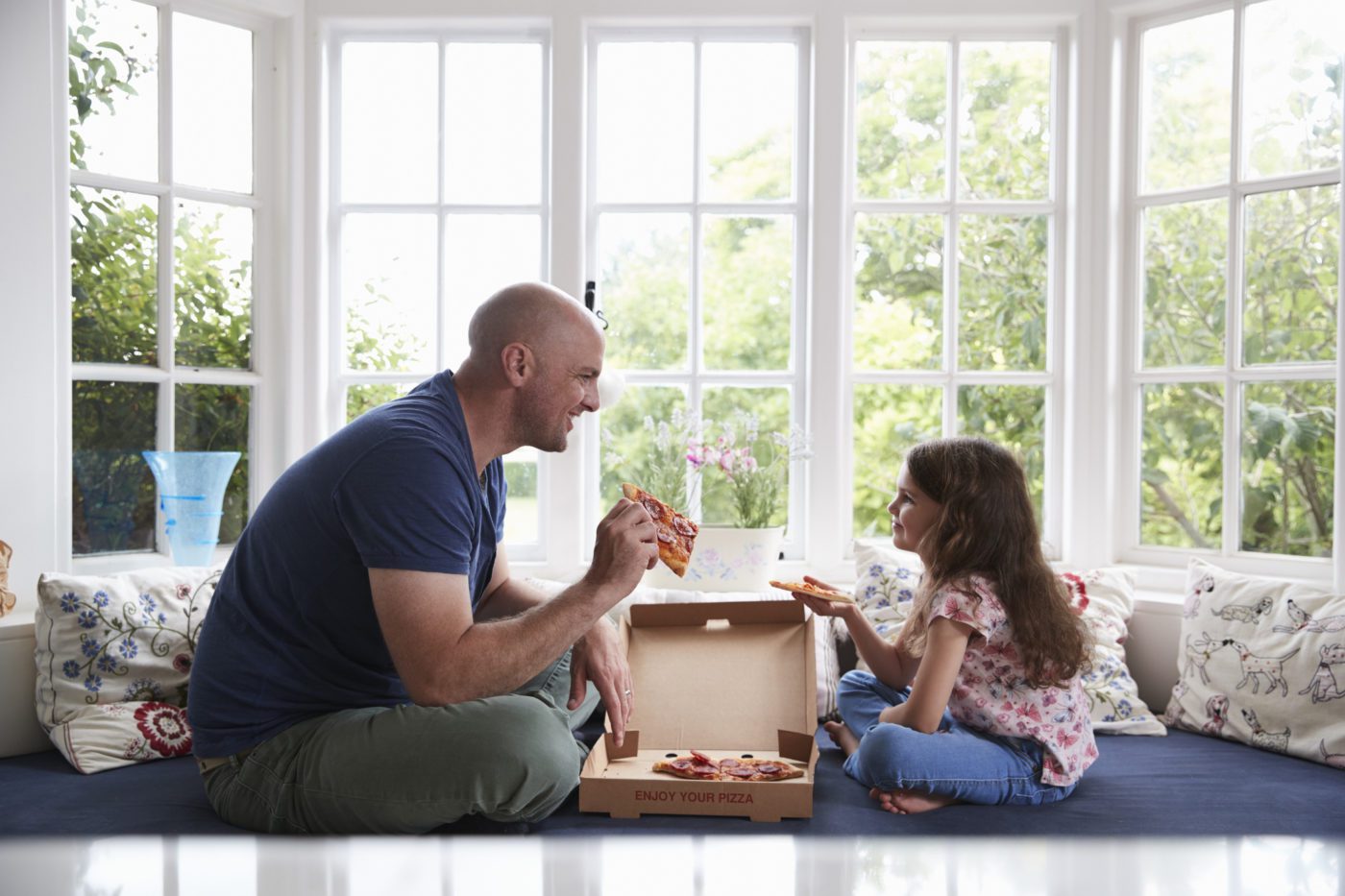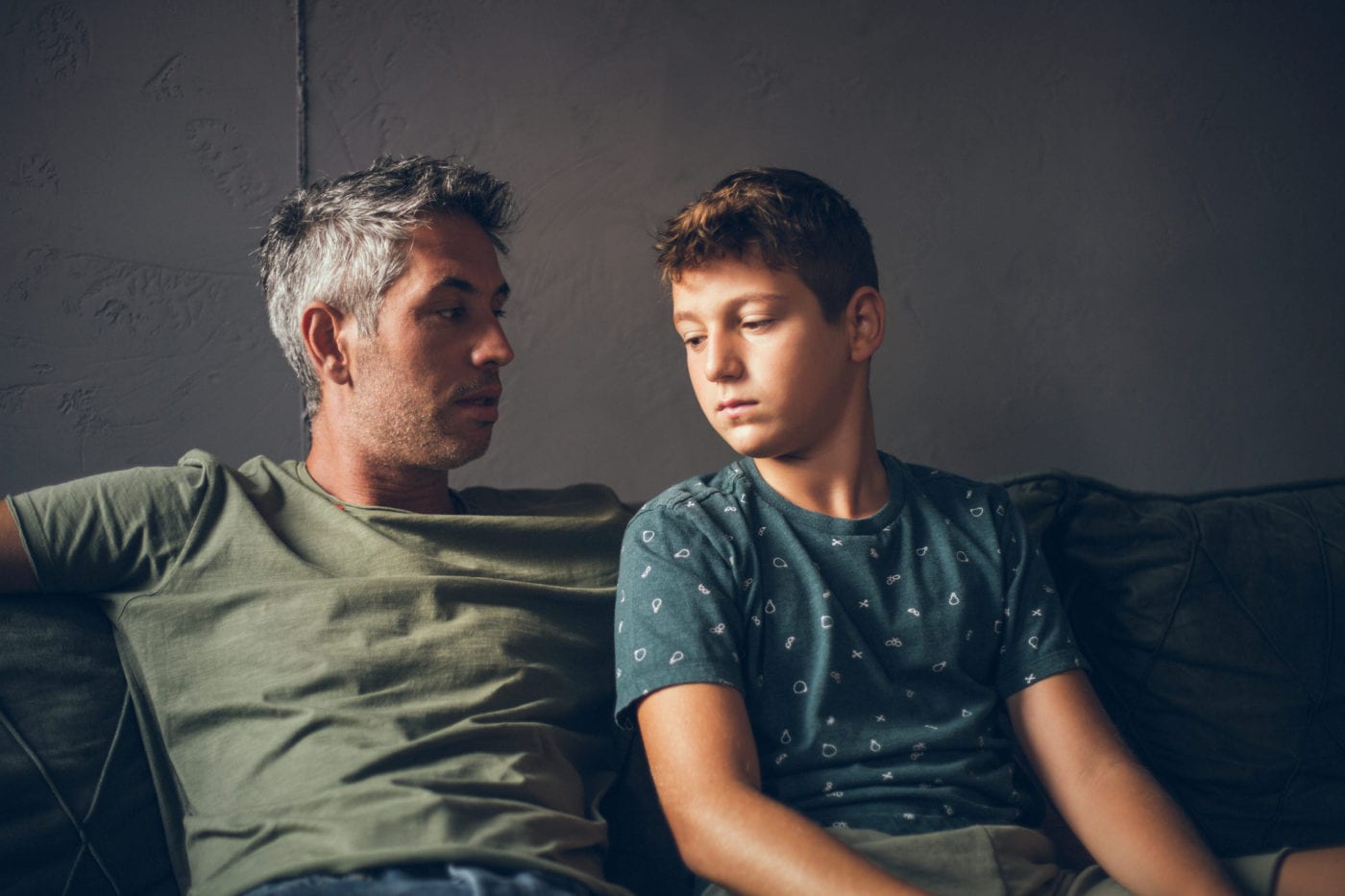I remember when my daughter took tenth-grade biology. Like in all high school bio classes, the students had labs and lab partners. Her lab partner found it was much easier to let my daughter do all the work than to try to figure out the problems for herself. My daughter came home angry every day, but she refused to set boundaries. Frustrated, I lectured her on the importance of making others take responsibility for their actions. Then, one day, I realized: It didn’t matter how often I preached about boundaries since I hadn’t modeled boundaries well in my own life.
There’s a great line by James Baldwin: “Children have never been very good at listening to their elders, but they have never failed to imitate them.” I think that’s true in the negative but also in the positive. That means there are things your child needs to see you do if she’s going to learn them for herself, even if those things are uncomfortable. Here are 5 uncomfortable things your child needs to see you do.
1. Cry.
When my kids were young, I would read The Chronicles of Narnia to them at night. Occasionally, we’d come to a section that moved me to tears. It was awkward at first, but I learned to embrace it. It’s important that your child understands that sadness isn’t weakness. The only way for him to know that is to see you model it. Granted, you can’t (and shouldn’t) manufacture tears. But you can allow your child to see you while you’re sad. Modeling healthy emotions helps provide a road map for your child in navigating his. Of course, if this is difficult for you (as it is for many of us), modeling a willingness to get a therapist is also a great move.
2. Sing.
Sometimes, when I’m driving alone with one of my kids and a favorite song comes on, I’ll intentionally sing out loud. It embarrasses my kids for sure, but one of the uncomfortable things your child needs to see you do is sing. That may sound weird, especially if you’re bad at singing. But the singing itself isn’t the point. We sing when we’re caught up in beauty in a way that lowers our defenses. In that way, singing creates a vulnerable moment with the people around us and it models an ability to be comfortable in your own skin, even if that skin sings slightly off key.
3. Ask for help.
I’m quick to ask for help in the hardware store, when I’m lost, when I’m cooking dinner. I want my children to be comfortable saying “I don’t know” because we all need help from time to time. But a lot of us men are notoriously bad at asking for it. Unfortunately, this creates a stigma for our kids around asking for help. So even if you don’t think you need help from anyone (you’re wrong, by the way), you can serve your kids by learning to humble yourself and ask for it. You might even make your own life a little easier too.
4. Ask for forgiveness.
Once, while speaking in front of a group, I told a funny anecdote about a time my son made a mistake. Well, I thought it was funny. But my son, who was in the audience, did not. When I realized I had hurt his feelings, I immediately asked for his forgiveness. Occasionally you will do something that hurts your child. This is hard to hear. It’s also impossible to avoid. Unfortunately, for a variety of reasons, we often fail to properly take ownership and ask for forgiveness. However, one of the most important things your child needs to see you do is own up to your mistakes and treat him like a human being whose feelings matter. Asking for forgiveness both models humility and affirms his value. Learn to do it freely and often.
5. Argue.
From time to time, I meet couples who say they almost never argue. Those people are weird. I’m not saying they’re lying, but I’ve got my doubts. The fact is that almost all couples argue. Some do it far more than others, but it’s a very normal and even healthy aspect of marriage (as long as you learn to argue well). What many of us do is hide this from our kids. But they need to see you argue. They need to learn what healthy disagreement looks like as well as healthy forgiveness and reconciliation. Let your kids see you argue well.
Sound off: What are other uncomfortable things your child needs to see you do?











Huddle up with your kids and ask, “Have you ever seen me ask for help or for forgiveness?”